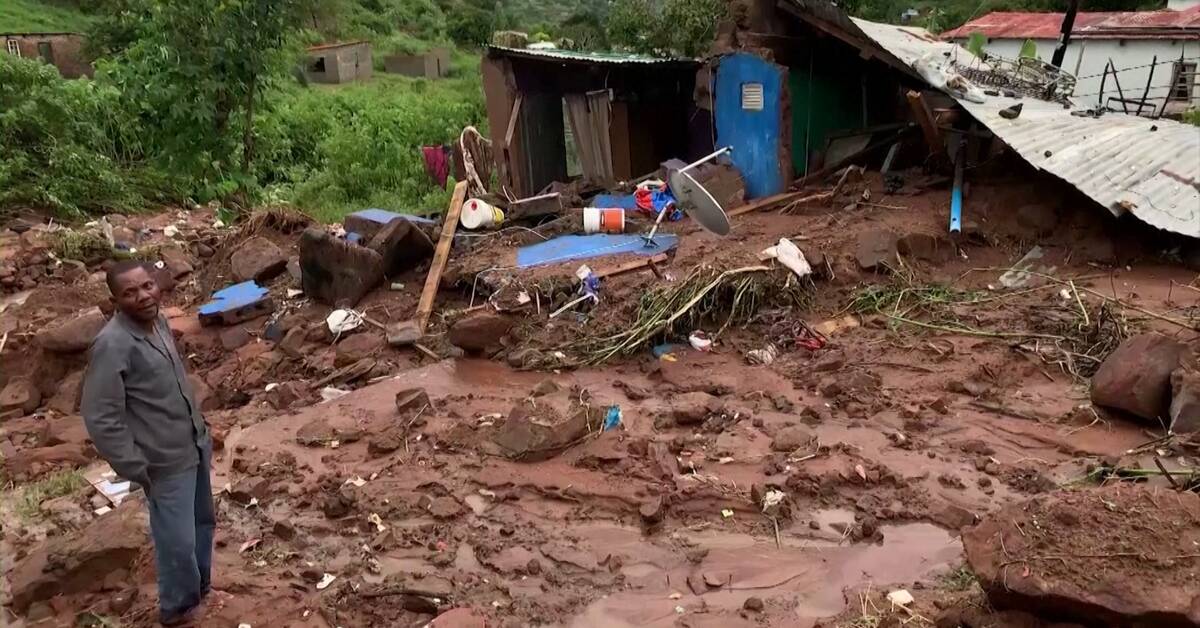In South Africa, the death toll is up to 435 people, in one of the heaviest torrential rains ever to hit the country.
South African President Cyril Ramaphosa said the downpour earlier in April was a national catastrophe of a magnitude never seen before in the country.
Large masses of clay poured out, people got stuck in their houses and were washed away.
The clean-up work around Durban is now underway.
Thousands of people are homeless.
Dead bodies are carried away in coffins.
In one of them lies Mxolisi Madziba.
His relatives searched for him in several mortuaries before they could identify the body.
- Even though it is very painful, it was a relief to find the body.
Now we can give him a dignified funeral, says Fikile Mtolo to the news agency Reuters.
Secure data models
It is most certainly the climate crisis that took his life.
In its latest report, the global research network World Weather Attribution establishes the connection between the storms in southern Africa and global warming.
In the past, it could take several years before you could certainly link individual weather phenomena to climate change, today you can sometimes be extremely fast.
Hurricanes Ana in late January and Batsirai in February, which hit Madagascar and Mozambique, among others, were exacerbated by climate change.
They got their increased energy from warming in the Indian Ocean, says Izidine Pinto, climate researcher at Cape Town University and one of the co-authors of the UN's climate panel's IPCC report AR6.
"Be exceptional"
They are still analyzing the rainfall around Durban and the final part of their final report on the spring extreme weather in southern Africa is expected in a few weeks.
By being able to quickly identify how the climate crisis is causing extreme weather such as torrential rain, storms, heat and fires, the research network hopes to be able to help countries better prepare and reduce human suffering and material losses.
When, for example, Vietnam was hit by heavy rainfall in October 2020, it could not be established that the torrential rains were amplified by global warming, but that such heavy rainfall is to be expected every eighty years in the region.
Javascript is disabled
Javascript must be turned on to play video
Read more about browser support
The browser is not supported
SVT does not support playback in your browser.
We therefore recommend that you switch to a different browser.
Read more about browser support
People in South Africa's Durban are forced to leave their homes due to the major floods that have hit the country.
Photo: Reuters

